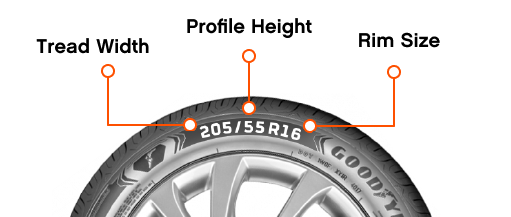Complete 3 steps to buy & book online


Your battery is a critical component of your vehicle. Without it, your car simply won’t start and none of the electrical components, such as your headlights and indicators, will work. Just like your tyres, your battery will need to be replaced after a few years, so knowing how to spot the signs is important.
How does a car battery work?
When you drive, your battery is charged by transforming mechanical power into electrical energy. Your battery then stores this charge and can use it to start your engine and other electrical components of your vehicle.
How long do car batteries last?
How long your batteries last depends on a few things, such as the type of vehicle you drive, how much you drive, and the weather your vehicle is exposed to. Typically, batteries can last anywhere between one to six years. However, there are things you can do to extend the life of your battery.
How to maintain your car battery
If you take good care of your battery, you won’t have to replace it as often. To extend the life of your battery:
1. Turn off your vehicle (and your lights)
Whenever your car doesn’t need to be running, turn it off to preserve your battery.
2. Don’t expose your battery to extreme temperatures
Batteries don’t do well in extreme temperatures. Park in the shade if it’s hot, and in a garage when the weather is particularly cold. Cold temperatures can make it harder for batteries to charge, while hot temperatures can evaporate the fluids it needs to function and speed up any corrosion.
3. Top up fluids
Keep the fluids in your vehicle topped up to ensure there’s no extra strain on the battery.
4. Drive for at least an hour each week
As you drive, your battery is charged, and it needs to be charged regularly. A one-hour drive a week is all it takes to keep your battery functioning.
5. Keep the battery clean and dry
Over time, corrosion can start to build up, affecting the electrical components in your battery.
How to change a car battery
Batteries are heavy, corrosive and flammable. As such, it’s recommended you get a professional to change your car battery. If done incorrectly, you risk damaging the electrical components of your vehicle. You may also void your warranty if you attempt to change the battery yourself.
When it does come time to replace your battery, however, you may want to know how to choose the right one - this comes down to knowing your battery size and dimensions.
To find out which size battery you need, you can check your car owner’s manual. It will provide information about the ‘Car Battery Group Size’, including the physical dimensions, terminal locations and type of battery required for your car. The battery required for your car is generally determined by the vehicle make, model and engine type.
When to replace your battery
As it's used, your battery loses its ability to store charge, and will need to be replaced. The biggest sign that you need to replace your battery is if your car is hard to start. Other signs include:
● Your battery fluid levels are low
Your vehicle may have an indicator that shows you when you need to replace your battery fluid. As a general rule, when your battery fluid runs out, it’s likely also time to replace your battery.
● Your battery is damaged
If your battery is leaking, swollen, cracked or there is corrosion on your connectors, that’s a good sign it needs to be replaced.
● Your headlights are dim
If your car is showing signs of electrical problems, such as dim headlights and slow indicators, this could be a sign you need to replace your battery.
How often should you get your battery tested?
Most battery manufacturers recommend that you get your battery tested twice a year. If you live in a climate that experiences extreme heat and/or cold, it’s best to have your battery tested in late autumn, and again in late spring.




